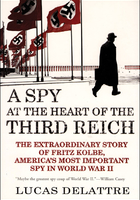General Epanchin lived in his own house near the Litaynaya. Besides this large residence—five-sixths of which was let in flats and lodgings-the general was owner of another enormous house in the Sadovaya bringing in even more rent than the first. Besides these houses he had a delightful little estate just out of town, and some sort of factory in another part of the city. General Epanchin, as everyone knew, had a good deal to do with certain government monopolies; he was also a voice, and an important one, in many rich public companies of various descriptions; in fact, he enjoyed the reputation of being a well-to-do man of busy habits, many ties, and affluent means. He had made himself indispensable in several quarters, amongst others in his department of the government; and yet it was a known fact that Fedor Ivanovitch Epanchin was a man of no education whatever, and had absolutely risen from the ranks.
This last fact could, of course, reflect nothing but credit upon the general; and yet, though unquestionably a sagacious man, he had his own little weaknesses-very excusable ones,—one of which was a dislike to any allusion to the above circumstance. He was undoubtedly clever. For instance, he made a point of never asserting himself when he would gain more by keeping in the background; and in consequence many exalted personages valued him principally for his humility and simplicity, and because "he knew his place." And yet if these good people could only have had a peep into the mind of this excellent fellow who "knew his place" so well! The fact is that, in spite of his knowledge of the world and his really remarkable abilities, he always liked to appear to be carrying out other people's ideas rather than his own. And also, his luck seldom failed him, even at cards, for which he had a passion that he did not attempt to conceal. He played for high stakes, and moved, altogether, in very varied society.
As to age, General Epanchin was in the very prime of life; that is, about fifty-five years of age,—the flowering time of existence, when real enjoyment of life begins. His healthy appearance, good colour, sound, though discoloured teeth, sturdy figure, preoccupied air during business hours, and jolly good humour during his game at cards in the evening, all bore witness to his success in life, and combined to make existence a bed of roses to his excellency. The general was lord of a flourishing family, consisting of his wife and three grown-up daughters. He had married young, while still a lieutenant, his wife being a girl of about his own age, who possessed neither beauty nor education, and who brought him no more than fifty souls of landed property, which little estate served, however, as a nest-egg for far more important accumulations. The general never regretted his early marriage, or regarded it as a foolish youthful escapade; and he so respected and feared his wife that he was very near loving her. Mrs. Epanchin came of the princely stock of Muishkin, which if not a brilliant, was, at all events, a decidedly ancient family; and she was extremely proud of her descent.
With a few exceptions, the worthy couple had lived through their long union very happily. While still young the wife had been able to make important friends among the aristocracy, partly by virtue of her family descent, and partly by her own exertions; while, in after life, thanks to their wealth and to the position of her husband in the service, she took her place among the higher circles as by right.
During these last few years all three of the general's daughters-Alexandra, Adelaida, and Aglaya—had grown up and matured. Of course they were only Epanchins, but their mother's family was noble; they might expect considerable fortunes; their father had hopes of attaining to very high rank indeed in his country's service-all of which was satisfactory. All three of the girls were decidedly pretty, even the eldest, Alexandra, who was just twenty-five years old. The middle daughter was now twenty-three, while the youngest, Aglaya, was twenty. This youngest girl was absolutely a beauty, and had begun of late to attract considerable attention in society. But this was not all, for every one of the three was clever, well educated, and accomplished.
It was a matter of general knowledge that the three girls were very fond of one another, and supported each other in every way; it was even said that the two elder ones had made certain sacrifices for the sake of the idol of the household, Aglaya. In society they not only disliked asserting themselves, but were actually retiring. Certainly no one could blame them for being too arrogant or haughty, and yet everybody was well aware that they were proud and quite understood their own value. The eldest was musical, while the second was a clever artist, which fact she had concealed until lately. In a word, the world spoke well of the girls; but they were not without their enemies, and occasionally people talked with horror of the number of books they had read.
They were in no hurry to marry. They liked good society, but were not too keen about it. All this was the more remarkable, because everyone was well aware of the hopes and aims of their parents.
It was about eleven o'clock in the forenoon when the prince rang the bell at General Epanchin's door. The general lived on the first floor or flat of the house, as modest a lodging as his position permitted. A liveried servant opened the door, and the prince was obliged to enter into long explanations with this gentleman, who, from the first glance, looked at him and his bundle with grave suspicion. At last, however, on the repeated positive assurance that he really was Prince Muishkin, and must absolutely see the general on business, the bewildered domestic showed him into a little ante-chamber leading to a waiting-room that adjoined the general's study, there handing him over to another servant, whose duty it was to be in this ante-chamber all the morning, and announce visitors to the general. This second individual wore a dress coat, and was some forty years of age; he was the general's special study servant, and well aware of his own importance.
"Wait in the next room, please; and leave your bundle here," said the door-keeper, as he sat down comfortably in his own easy-chair in the ante-chamber. He looked at the prince in severe surprise as the latter settled himself in another chair alongside, with his bundle on his knees.
"If you don't mind, I would rather sit here with you," said the prince; "I should prefer it to sitting in there."
"Oh, but you can't stay here. You are a visitor—a guest, so to speak. Is it the general himself you wish to see?"
The man evidently could not take in the idea of such a shabby-looking visitor, and had decided to ask once more.
"Yes—I have business—" began the prince.
"I do not ask you what your business may be, all I have to do is to announce you; and unless the secretary comes in here I cannot do that."
The man's suspicions seemed to increase more and more. The prince was too unlike the usual run of daily visitors; and although the general certainly did receive, on business, all sorts and conditions of men, yet in spite of this fact the servant felt great doubts on the subject of this particular visitor. The presence of the secretary as an intermediary was, he judged, essential in this case.
"Surely you—are from abroad?" he inquired at last, in a confused sort of way. He had begun his sentence intending to say, "Surely you are not Prince Muishkin, are you?"
"Yes, straight from the train! Did not you intend to say, 'Surely you are not Prince Muishkin?' just now, but refrained out of politeness?"
"H'm!" grunted the astonished servant.
"I assure you I am not deceiving you; you shall not have to answer for me. As to my being dressed like this, and carrying a bundle, there's nothing surprising in that—the fact is, my circumstances are not particularly rosy at this moment."
"H'm!—no, I'm not afraid of that, you see; I have to announce you, that's all. The secretary will be out directly-that is, unless you—yes, that's the rub—unless you—come, you must allow me to ask you—you've not come to beg, have you?"
"Oh dear no, you can be perfectly easy on that score. I have quite another matter on hand."
"You must excuse my asking, you know. Your appearance led me to think—but just wait for the secretary; the general is busy now, but the secretary is sure to come out."
"Oh—well, look here, if I have some time to wait, would you mind telling me, is there any place about where I could have a smoke? I have my pipe and tobacco with me."
"Smoke?" said the man, in shocked but disdainful surprise, blinking his eyes at the prince as though he could not believe his senses. "No, sir, you cannot smoke here, and I wonder you are not ashamed of the very suggestion. Ha, ha! a cool idea that, I declare!"
"Oh, I didn't mean in this room! I know I can't smoke here, of course. I'd adjourn to some other room, wherever you like to show me to. You see, I'm used to smoking a good deal, and now I haven't had a puff for three hours; however, just as you like."
"Now how on earth am I to announce a man like that?" muttered the servant. "In the first place, you've no right in here at all; you ought to be in the waiting-room, because you're a sort of visitor—a guest, in fact—and I shall catch it for this. Look here, do you intend to take up you abode with us?" he added, glancing once more at the prince's bundle, which evidently gave him no peace.
"No, I don't think so. I don't think I should stay even if they were to invite me. I've simply come to make their acquaintance, and nothing more."
"Make their acquaintance?" asked the man, in amazement, and with redoubled suspicion. "Then why did you say you had business with the general?"
"Oh well, very little business. There is one little matter—some advice I am going to ask him for; but my principal object is simply to introduce myself, because I am Prince Muishkin, and Madame Epanchin is the last of her branch of the house, and besides herself and me there are no other Muishkins left."
"What—you're a relation then, are you?" asked the servant, so bewildered that he began to feel quite alarmed.
"Well, hardly so. If you stretch a point, we are relations, of course, but so distant that one cannot really take cognizance of it. I once wrote to your mistress from abroad, but she did not reply. However, I have thought it right to make acquaintance with her on my arrival. I am telling you all this in order to ease your mind, for I see you are still far from comfortable on my account. All you have to do is to announce me as Prince Muishkin, and the object of my visit will be plain enough. If I am received—very good; if not, well, very good again. But they are sure to receive me, I should think; Madame Epanchin will naturally be curious to see the only remaining representative of her family. She values her Muishkin descent very highly, if I am rightly informed."
The prince's conversation was artless and confiding to a degree, and the servant could not help feeling that as from visitor to common serving-man this state of things was highly improper. His conclusion was that one of two things must be the explanation—either that this was a begging impostor, or that the prince, if prince he were, was simply a fool, without the slightest ambition; for a sensible prince with any ambition would certainly not wait about in ante-rooms with servants, and talk of his own private affairs like this. In either case, how was he to announce this singular visitor?
"I really think I must request you to step into the next room!" he said, with all the insistence he could muster.
"Why? If I had been sitting there now, I should not have had the opportunity of making these personal explanations. I see you are still uneasy about me and keep eyeing my cloak and bundle. Don't you think you might go in yourself now, without waiting for the secretary to come out?"
"No, no! I can't announce a visitor like yourself without the secretary. Besides the general said he was not to be disturbed—he is with the Colonel C—. Gavrila Ardalionovitch goes in without announcing."
"Who may that be? a clerk?"
"What? Gavrila Ardalionovitch? Oh no; he belongs to one of the companies. Look here, at all events put your bundle down, here."
"Yes, I will if I may; and—can I take off my cloak"
"Of course; you can't go in?there?with it on, anyhow."
The prince rose and took off his mantle, revealing a neat enough morning costume—a little worn, but well made. He wore a steel watch chain and from this chain there hung a silver Geneva watch. Fool the prince might be, still, the general's servant felt that it was not correct for him to continue to converse thus with a visitor, in spite of the fact that the prince pleased him somehow.
"And what time of day does the lady receive?" the latter asked, reseating himself in his old place.
"Oh, that's not in my province! I believe she receives at any time; it depends upon the visitors. The dressmaker goes in at eleven. Gavrila Ardalionovitch is allowed much earlier than other people, too; he is even admitted to early lunch now and then."
"It is much warmer in the rooms here than it is abroad at this season," observed the prince; "but it is much warmer there out of doors. As for the houses—a Russian can't live in them in the winter until he gets accustomed to them."
"Don't they heat them at all?"
"Well, they do heat them a little; but the houses and stoves are so different to ours."
"H'm! were you long away?"
"Four years! and I was in the same place nearly all the time,—in one village."
"You must have forgotten Russia, hadn't you?"
"Yes, indeed I had—a good deal; and, would you believe it, I often wonder at myself for not having forgotten how to speak Russian? Even now, as I talk to you, I keep saying to myself 'how well I am speaking it.' Perhaps that is partly why I am so talkative this morning. I assure you, ever since yesterday evening I have had the strongest desire to go on and on talking Russian."
"H'm! yes; did you live in Petersburg in former years?"
This good flunkey, in spite of his conscientious scruples, really could not resist continuing such a very genteel and agreeable conversation.
"In Petersburg? Oh no! hardly at all, and now they say so much is changed in the place that even those who did know it well are obliged to relearn what they knew. They talk a good deal about the new law courts, and changes there, don't they?"
"H'm! yes, that's true enough. Well now, how is the law over there, do they administer it more justly than here?"
"Oh, I don't know about that! I've heard much that is good about our legal administration, too. There is no capital punishment here for one thing."
"Is there over there?"
"Yes—I saw an execution in France—at Lyons. Schneider took me over with him to see it."
"What, did they hang the fellow?"
"No, they cut off people's heads in France."
"What did the fellow do?—yell?"
"Oh no—it's the work of an instant. They put a man inside a frame and a sort of broad knife falls by machinery—they call the thing a guillotine-it falls with fearful force and weight-the head springs off so quickly that you can't wink your eye in between. But all the preparations are so dreadful. When they announce the sentence, you know, and prepare the criminal and tie his hands, and cart him off to the scaffold—that's the fearful part of the business. The people all crowd round—even women-though they don't at all approve of women looking on."
"No, it's not a thing for women."
"Of course not—of course not!—bah! The criminal was a fine intelligent fearless man; Le Gros was his name; and I may tell you—believe it or not, as you like—that when that man stepped upon the scaffold he?cried, he did indeed,—he was as white as a bit of paper. Isn't it a dreadful idea that he should have cried—cried! Whoever heard of a grown man crying from fear—not a child, but a man who never had cried before—a grown man of forty-five years. Imagine what must have been going on in that man's mind at such a moment; what dreadful convulsions his whole spirit must have endured; it is an outrage on the soul that's what it is. Because it is said 'thou shalt not kill,' is he to be killed because he murdered some one else? No, it is not right, it's an impossible theory. I assure you, I saw the sight a month ago and it's dancing before my eyes to this moment. I dream of it, often."
The prince had grown animated as he spoke, and a tinge of colour suffused his pale face, though his way of talking was as quiet as ever. The servant followed his words with sympathetic interest. Clearly he was not at all anxious to bring the conversation to an end. Who knows? Perhaps he too was a man of imagination and with some capacity for thought.
"Well, at all events it is a good thing that there's no pain when the poor fellow's head flies off," he remarked.
"Do you know, though," cried the prince warmly, "you made that remark now, and everyone says the same thing, and the machine is designed with the purpose of avoiding pain, this guillotine I mean; but a thought came into my head then: what if it be a bad plan after all? You may laugh at my idea, perhaps—but I could not help its occurring to me all the same. Now with the rack and tortures and so on—you suffer terrible pain of course; but then your torture is bodily pain only (although no doubt you have plenty of that) until you die. But?here?I should imagine the most terrible part of the whole punishment is, not the bodily pain at all—but the certain knowledge that in an hour,—then in ten minutes, then in half a minute, then now—this very?instant—your soul must quit your body and that you will no longer be a man—and that this is certain,?certain! That's the point—the certainty of it. Just that instant when you place your head on the block and hear the iron grate over your head—then—that quarter of a second is the most awful of all.
"This is not my own fantastical opinion—many people have thought the same; but I feel it so deeply that I'll tell you what I think. I believe that to execute a man for murder is to punish him immeasurably more dreadfully than is equivalent to his crime. A murder by sentence is far more dreadful than a murder committed by a criminal. The man who is attacked by robbers at night, in a dark wood, or anywhere, undoubtedly hopes and hopes that he may yet escape until the very moment of his death. There are plenty of instances of a man running away, or imploring for mercy—at all events hoping on in some degree—even after his throat was cut. But in the case of an execution, that last hope—having which it is so immeasurably less dreadful to die,—is taken away from the wretch andcertainty?substituted in its place! There is his sentence, and with it that terrible certainty that he cannot possibly escape death—which, I consider, must be the most dreadful anguish in the world. You may place a soldier before a cannon's mouth in battle, and fire upon him—and he will still hope. But read to that same soldier his death-sentence, and he will either go mad or burst into tears. Who dares to say that any man can suffer this without going mad? No, no! it is an abuse, a shame, it is unnecessary—why should such a thing exist? Doubtless there may be men who have been sentenced, who have suffered this mental anguish for a while and then have been reprieved; perhaps such men may have been able to relate their feelings afterwards. Our Lord Christ spoke of this anguish and dread. No! no! no! No man should be treated so, no man, no man!"
The servant, though of course he could not have expressed all this as the prince did, still clearly entered into it and was greatly conciliated, as was evident from the increased amiability of his expression. "If you are really very anxious for a smoke," he remarked, "I think it might possibly be managed, if you are very quick about it. You see they might come out and inquire for you, and you wouldn't be on the spot. You see that door there? Go in there and you'll find a little room on the right; you can smoke there, only open the window, because I ought not to allow it really, and—." But there was no time, after all.
A young fellow entered the ante-room at this moment, with a bundle of papers in his hand. The footman hastened to help him take off his overcoat. The new arrival glanced at the prince out of the corners of his eyes.
"This gentleman declares, Gavrila Ardalionovitch," began the man, confidentially and almost familiarly, "that he is Prince Muishkin and a relative of Madame Epanchin's. He has just arrived from abroad, with nothing but a bundle by way of luggage—."
The prince did not hear the rest, because at this point the servant continued his communication in a whisper.
Gavrila Ardalionovitch listened attentively, and gazed at the prince with great curiosity. At last he motioned the man aside and stepped hurriedly towards the prince.
"Are you Prince Muishkin?" he asked, with the greatest courtesy and amiability.
He was a remarkably handsome young fellow of some twenty-eight summers, fair and of middle height; he wore a small beard, and his face was most intelligent. Yet his smile, in spite of its sweetness, was a little thin, if I may so call it, and showed his teeth too evenly; his gaze though decidedly good-humoured and ingenuous, was a trifle too inquisitive and intent to be altogether agreeable.
"Probably when he is alone he looks quite different, and hardly smiles at all!" thought the prince.
He explained about himself in a few words, very much the same as he had told the footman and Rogojin beforehand.
Gavrila Ardalionovitch meanwhile seemed to be trying to recall something.
"Was it not you, then, who sent a letter a year or less ago—from Switzerland, I think it was—to Elizabetha Prokofievna (Mrs. Epanchin)?"
"It was."
"Oh, then, of course they will remember who you are. You wish to see the general? I'll tell him at once—he will be free in a minute; but you—you had better wait in the ante-chamber,—hadn't you? Why is he here?" he added, severely, to the man.
"I tell you, sir, he wished it himself!"
At this moment the study door opened, and a military man, with a portfolio under his arm, came out talking loudly, and after bidding good-bye to someone inside, took his departure.
"You there, Gania?" cried a voice from the study, "come in here, will you?"
Gavrila Ardalionovitch nodded to the prince and entered the room hastily.
A couple of minutes later the door opened again and the affable voice of Gania cried:
"Come in please, prince!"















